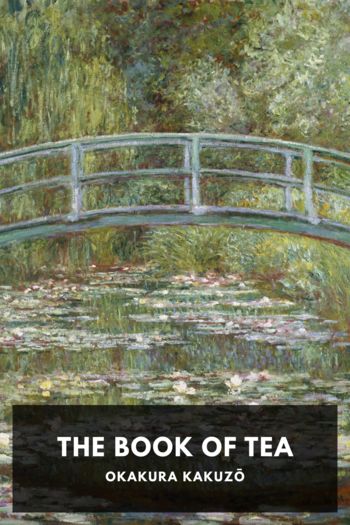The Warden Anthony Trollope (top 100 novels txt) 📖

- Author: Anthony Trollope
Book online «The Warden Anthony Trollope (top 100 novels txt) 📖». Author Anthony Trollope
Mr. Harding is a small man, now verging on sixty years, but bearing few of the signs of age; his hair is rather grizzled, though not gray; his eye is very mild, but clear and bright, though the double glasses which are held swinging from his hand, unless when fixed upon his nose, show that time has told upon his sight; his hands are delicately white, and both hands and feet are small; he always wears a black frock coat, black knee-breeches, and black gaiters, and somewhat scandalises some of his more hyperclerical brethren by a black neck-handkerchief.
Mr. Harding’s warmest admirers cannot say that he was ever an industrious man; the circumstances of his life have not called on him to be so; and yet he can hardly be called an idler. Since his appointment to his precentorship, he has published, with all possible additions of vellum, typography, and gilding, a collection of our ancient church music, with some correct dissertations on Purcell, Crotch, and Nares. He has greatly improved the choir of Barchester, which, under his dominion, now rivals that of any cathedral in England. He has taken something more than his fair share in the cathedral services, and has played the violoncello daily to such audiences as he could collect, or, faute de mieux, to no audience at all.
We must mention one other peculiarity of Mr. Harding. As we have before stated, he has an income of eight hundred a year, and has no family but his one daughter; and yet he is never quite at ease in money matters. The vellum and gilding of “Harding’s Church Music” cost more than anyone knows, except the author, the publisher, and the Rev. Theophilus Grantly, who allows none of his father-in-law’s extravagances to escape him. Then he is generous to his daughter, for whose service he keeps a small carriage and pair of ponies. He is, indeed, generous to all, but especially to the twelve old men who are in a peculiar manner under his care. No doubt with such an income Mr. Harding should be above the world, as the saying is; but, at any rate, he is not above Archdeacon Theophilus Grantly, for he is always more or less in debt to his son-in-law, who has, to a certain extent, assumed the arrangement of the precentor’s pecuniary affairs.
II The Barchester ReformerMr. Harding has been now precentor of Barchester for ten years; and, alas, the murmurs respecting the proceeds of Hiram’s estate are again becoming audible. It is not that anyone begrudges to Mr. Harding the income which he enjoys, and the comfortable place which so well becomes him; but such matters have begun to be talked of in various parts of England. Eager pushing politicians have asserted in the House of Commons, with very telling indignation, that the grasping priests of the Church of England are gorged with the wealth which the charity of former times has left for the solace of the aged, or the education of the young. The well-known case of the Hospital of St. Cross has even come before the law courts of the country, and the struggles of Mr. Whiston, at Rochester, have met with sympathy and support. Men are beginning to say that these things must be looked into.
Mr. Harding, whose conscience in the matter is clear, and who has never felt that he had received a pound from Hiram’s will to which he was not entitled, has naturally taken the part of the church in talking over these matters with his friend, the bishop, and his son-in-law, the archdeacon. The archdeacon, indeed, Dr. Grantly, has been somewhat loud in the matter. He is a personal friend of the dignitaries of the Rochester Chapter, and has written letters in the public press on the subject of that turbulent Dr. Whiston, which, his admirers think, must well nigh set the question at rest. It is also known at Oxford that he is the author of the pamphlet signed “Sacerdos” on the subject of the Earl of Guildford and St. Cross, in which it is so clearly argued that the manners of the present times do not admit of a literal adhesion to the very words of the founder’s will, but that the interests of the church for which the founder was so deeply concerned are best consulted in enabling its bishops to reward those shining lights whose services have been most signally serviceable to Christianity. In answer to this, it is asserted that Henry de Blois, founder of St. Cross, was not greatly interested in the welfare of the reformed church, and that the masters of St. Cross, for many years past, cannot be called shining lights in the service of Christianity; it is, however, stoutly maintained, and no doubt felt, by all the archdeacon’s friends, that his logic is conclusive, and has not, in fact, been answered.
With such a tower of strength to back both his arguments and his conscience, it may be imagined that Mr. Harding has never felt any compunction as to receiving his quarterly sum of two hundred pounds. Indeed, the subject has never presented itself to his mind in that shape. He has talked not unfrequently, and heard





Comments (0)